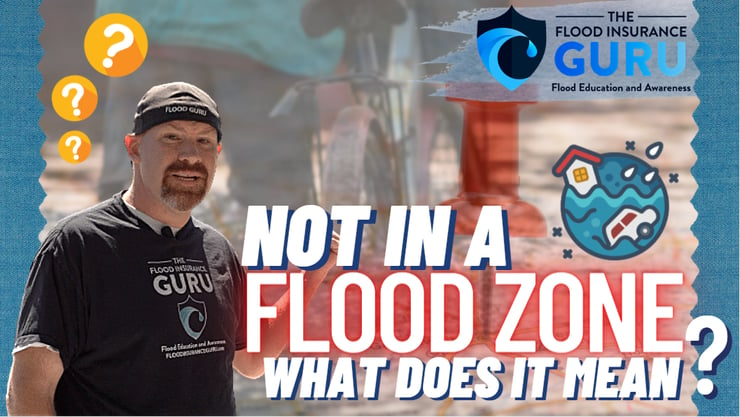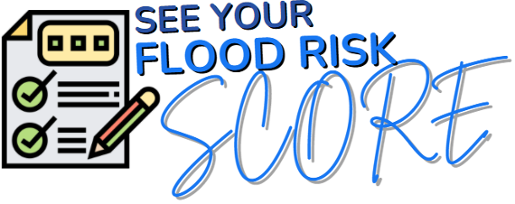
Introduction to Flood Zones and Their Impact on Insurance
When it comes to flood insurance, once you're exposed to it you also start to encounter one of the most prevalent terms in the industry: flood zone.
Many property owners would say that they're not in a flood zone because either their real estate agent, mortgage, or insurance agent would tell them so, but are you really not in a flood zone?

Flood Zone
First, let's go over what a flood zone is. The Federal Emergency Management Agency (FEMA) who manages the National Flood Insurance Program (NFIP) or the federal flood insurance would define flood zones as an area with a specific type of flood risk according to geographical and historical data.
It's important to note that, generally, all flood insurance companies depend on FEMA's words when it comes to flood insurance. The data is dependent on floodplain devolvement in that area, floodplain status, proximity to a body of water like creeks, lakes, or rivers, history of flooding, the chance of flooding, and things like that to create an output that what we call a flood map or Flood Insurance Rate Map (FIRM).
A flood map of an area or community can show multiple flood zones since it depends on the flood risks that this area faces. These zones can range from low-risk flood zones to high-risk flood zones or special flood hazard areas (SFHA).
Now, what does it mean when people start saying that they're not in a flood zone?
Not in a Flood Zone?
When it comes to flood zones and flood insurance rate map (FIRM), there's no such thing as not being in a flood zone. This is a common misconception that people can get because, truth be told, every house, building, and property actually sits in a flood zone. It just depends on what type of flood zone you're in.
You see, when people say that they're not in a flood zone, this generally means that the property is not sitting in the special flood hazard area (SFHA). When it comes to the Federal Emergency Management Agency (FEMA), every house has a flood zone designation.
Most likely, when your mortgage or agent tells you that the house is not in a flood zone, what they meant is that you don't have to go face a mandatory flood insurance purchase because it's not in a 100-year flood zone.
Examples of a 100-year flood zone are flood zones A (flood zone A, flood zone AE, flood zone AH, flood zone AR, flood zone AO) or even a flood zone V which is the coastal flood zone.

What this probably means is that when it comes to flood zone maps, the property is sitting on a flood zone C, flood zone B, or even flood zone D. Most likely, this may show up as a flood zone X and the reason why they say that you're not in a flood zone is that your flood insurance won't be required since you're in low-risk flood areas.
The Problem with Low-Risk Flood Areas
Now, it's easy to find peace of mind when you realize that you're in a low-risk flood zone where the requirement for flood insurance isn't really there at all. The problem with these zones is that 30% of the flood insurance claims come from this area according to FEMA and the National Flood Insurance Program (NFIP). Homeowners that say that they're not in a flood zone are the ones that comprise that 30% and we're only talking about FEMA's numbers.
Being in a low-risk flood zone doesn't really mean that you won't get flooded like the high-risk flood zone. There might be minimal flood hazards in the area which is why it shows that you're in these zones, but there are varying reasons why a property owner in a flood zone X can be flooded.
We've also seen low-risk zones get flooding damage due to flash floods and other severe floods throughout the year.
This is why we encourage everyone to secure flood insurance policies for their residential property or even commercial flood insurance for their business. The chances of flooding can be very low one day then skyrocket the other day, given the right circumstances.
So when you hear someone tell you that you are not in a flood zone or they are not in a flood zone, take time to reach out to your local floodplain management standards and officials or your insurance agent to really identify what your flood zone is. It's better to be safe than sorry when the risk for flooding becomes too high and loss from flood damage becomes too unbearable.
If you have any questions on flood zones, maybe you want to know what flood zone you're in, what your flood insurance options are, or anything about a flood. Reach out to us through the links below.
Remember, we have an educational background in flood mitigation and we want to help you understand flood risks, your flood insurance, and mitigating your property long term.






